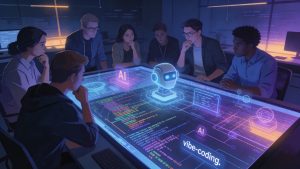OpenAI is taking a bold step forward in redefining the role of artificial intelligence in everyday computing. At its recent Developer Day event, the company unveiled its latest vision—to transform ChatGPT from a conversational tool into a fully interactive platform that functions as a next-generation operating system for users and developers alike.
From Chatbot to Platform
ChatGPT is evolving beyond being a text-based assistant. OpenAI CEO Sam Altman demonstrated how new apps can now run entirely inside ChatGPT’s chat interface, marking a major milestone in AI interactivity. This shift positions ChatGPT not just as a conversational agent but as a foundational ecosystem for executing tasks, launching applications, and managing workflows—all within a single interface.
This move aligns with OpenAI’s ambition to make ChatGPT more integrated, functional, and capable of handling increasingly complex commands. Users will be able to access AI-powered utilities that go far beyond writing or research—turning conversations into actionable operations.
Building a Developer Ecosystem Inside ChatGPT
One of the most significant announcements was the introduction of a developer environment within ChatGPT. By embedding apps directly into the chat, OpenAI is creating a cloud-based framework where developers can design and deploy tools without needing traditional operating system structures.
This design transforms ChatGPT into a self-contained environment capable of running digital assistants, productivity apps, data analysis tools, and even code generators—all powered by AI. Developers can now integrate their applications seamlessly into the environment, effectively using ChatGPT as an AI-native operating platform.
A New Frontier for Human-AI Interaction
The concept of ChatGPT as an operating system represents a fundamental change in how people interact with computers. Instead of navigating menus, opening folders, or switching between programs, users can simply talk to their system.
Through natural language, users could instruct the AI to execute commands such as launching an app, generating a report, or managing schedules. This fluid interaction eliminates friction, mimicking the efficiency of an operating system while retaining the conversational ease that defines ChatGPT.
Revolutionizing Productivity Through AI Integration
ChatGPT’s transformation will also reshape workplace productivity. Imagine companies where employees use a single AI interface to analyze data, generate presentations, automate workflows, and collaborate in real time—all without switching applications.
This convergence of tasks within one environment mirrors the seamless user experience of an operating system but powered by contextual intelligence. As ChatGPT learns from user behavior, it personalizes interactions, anticipating intent and optimizing performance without explicit prompts.
OpenAI’s Broader Strategy and Impact
OpenAI’s push to turn ChatGPT into an operational hub is part of its strategy to extend AI beyond model-based tools into fully integrated systems. The company envisions an ecosystem where AI acts as the digital backbone for productivity, creativity, and automation.
AI operating systems like this one hold the potential to redefine the software landscape, gradually replacing traditional static interfaces with dynamic, conversation-first experiences. By turning dialogue into a central component of computing, OpenAI signals the emergence of a new class of “AI-native” platforms.
The Future of Computing Is Conversational
The idea of a conversational operating system represents the next chapter in computing evolution. It merges language understanding, real-time reasoning, and application functionality into one cohesive experience.
For developers, this opens vast opportunities to build tools that extend what ChatGPT can do—paving the way for a future where app development becomes as intuitive as writing a sentence. For users, it means interacting with technology in the most natural way possible—through dialogue.
As OpenAI continues to expand the capabilities of ChatGPT, it’s clear that this vision will change how software is built, accessed, and experienced. ChatGPT is no longer just an assistant—it’s the foundation of a new, AI-powered digital universe.
Read more such articles from our Newsletter here.



